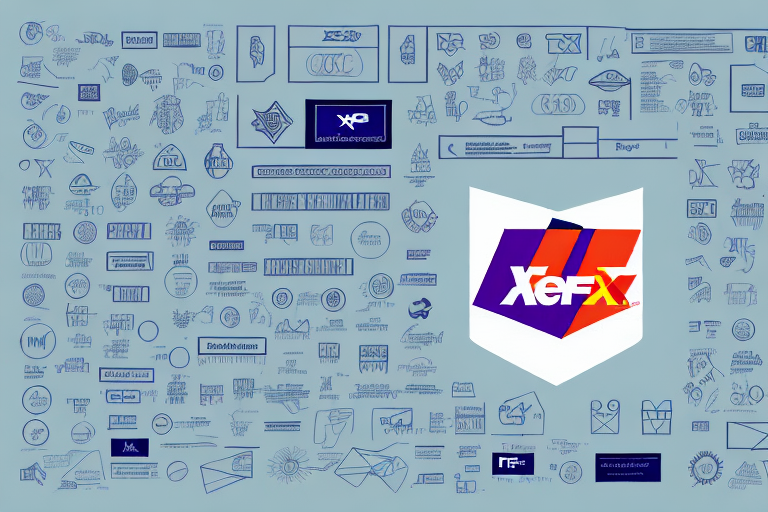How Green Ecommerce Businesses Can Implement Sustainable Supply Chain Management
In today's world, businesses are increasingly recognizing the importance of environmental sustainability and the need to reduce their carbon footprint. Ecommerce businesses are no exception. With the rise of online shopping, the impact of ecommerce on the environment has become a major concern. From packaging materials to transportation emissions, ecommerce supply chains have a significant impact on the environment. This is where sustainable supply chain management comes in. By implementing sustainable practices in the supply chain, ecommerce businesses can reduce their environmental impact and improve their bottom line. In this article, we will discuss how green ecommerce businesses can implement sustainable supply chain management.
Understanding the Importance of Sustainable Supply Chain Management in Ecommerce
The traditional supply chain model is linear, with raw materials being processed into products, which are then transported to retailers and consumers. This model creates a lot of waste and pollution, resulting in a significant impact on the environment. Sustainable supply chain management aims to reduce this impact by incorporating principles of environmental sustainability at every stage of the supply chain. This includes reducing waste, increasing energy efficiency, and using sustainable materials. According to a McKinsey report, companies that prioritize sustainability can achieve up to 20% cost savings through waste reduction and efficiency improvements.
One of the key benefits of sustainable supply chain management is that it can help ecommerce businesses build a positive reputation with consumers. As more people become aware of the environmental impact of their purchasing decisions, they are increasingly looking for businesses that prioritize sustainability. Implementing sustainable supply chain management practices allows ecommerce businesses to demonstrate their commitment to environmental responsibility and attract environmentally conscious consumers.
Another important aspect of sustainable supply chain management is the social impact it can have. By prioritizing sustainability, ecommerce businesses can ensure that their supply chain is ethical and socially responsible. This means ensuring fair labor practices, safe working conditions, and fair wages for workers throughout the supply chain. Supporting ethical practices not only contributes to the well-being of workers and communities but also reduces the risk of negative publicity and reputational damage.
Benefits of Implementing Sustainable Supply Chain Management in Your Ecommerce Business
Implementing sustainable supply chain management can bring numerous benefits to ecommerce businesses:
- Cost Reduction: Streamlining operations and reducing waste can significantly lower operational costs.
- Enhanced Brand Image: Demonstrating a commitment to sustainability can improve brand reputation and loyalty.
- Risk Mitigation: Sustainable practices help in complying with environmental regulations and reducing environmental risks.
- New Business Opportunities: Attracting environmentally-conscious customers and investors can open up new markets.
Moreover, sustainable supply chain management can lead to increased efficiency and productivity. Optimizing processes and reducing waste results in faster delivery times, improved customer satisfaction, and ultimately, increased revenue. Additionally, fostering strong relationships with suppliers and other stakeholders can lead to more collaborative and mutually beneficial partnerships.
Challenges Faced by Ecommerce Businesses in Implementing Sustainable Supply Chain Management
While the benefits are substantial, implementing sustainable supply chain management is not without challenges:
- Lack of Control: Reliance on third-party suppliers and logistics providers can make it difficult to ensure that sustainable practices are consistently followed.
- Cost Implications: Initial investments in sustainable practices can be high, and some businesses may struggle to justify the expense.
- Awareness and Education: Suppliers may lack knowledge about sustainable practices or the resources to implement them. Similarly, customers may not prioritize sustainability in their purchasing decisions.
- Global Supply Chain Complexity: Sourcing products from different countries with varying sustainability regulations and standards complicates the implementation of uniform sustainable practices.
How to Conduct a Sustainability Assessment for Your Ecommerce Business's Supply Chain
Conducting a sustainability assessment is crucial for identifying areas where your supply chain can improve. Here are the steps to perform a comprehensive assessment:
- Identify Key Impact Areas: Determine which parts of your supply chain have the most significant environmental and social impacts.
- Engage Stakeholders: Involve suppliers, customers, and employees in the assessment process to gain diverse perspectives.
- Set Clear Sustainability Goals: Define specific, measurable, achievable, relevant, and time-bound (SMART) goals. For example, committing to reduce carbon emissions by 25% within five years.
- Assess Supplier Sustainability: Evaluate the sustainability practices of your suppliers, utilizing tools like the Carbon Trust Supply Chain Assessment.
- Monitor and Review: Regularly track progress toward your sustainability goals and adjust strategies as necessary.
Setting and regularly reviewing sustainability goals ensures continuous improvement and alignment with your business's values and objectives.
Strategies for Reducing the Environmental Impact of Your Ecommerce Supply Chain
After conducting a sustainability assessment, implement the following strategies to minimize your supply chain's environmental footprint:
- Use Sustainable Materials: Opt for recyclable, biodegradable, or renewable materials in your products and packaging.
- Optimize Transportation: Streamline logistics to reduce transportation distances and emissions. Utilizing efficient routing software can aid in minimizing fuel consumption.
- Energy-Efficient Operations: Implement energy-saving practices in warehouses and distribution centers, such as LED lighting and energy-efficient machinery.
- Circular Economy: Design products and packaging for reuse or recycling, reducing the need for new resources.
- Carbon Offsetting: Invest in renewable energy projects or purchase carbon credits to offset unavoidable emissions.
Collaborating with suppliers to adopt these strategies ensures a cohesive approach to sustainability throughout your supply chain.
Tips for Choosing Sustainable Suppliers for Your Ecommerce Business
Selecting the right suppliers is pivotal for maintaining a sustainable supply chain. Consider the following when choosing suppliers:
- Environmental Policies: Ensure suppliers have robust environmental policies and practices in place.
- Certifications and Accreditations: Look for certifications such as ISO 14001 for environmental management or Fair Trade certifications that indicate a commitment to sustainability.
- Social Responsibility: Choose suppliers that prioritize fair labor practices, human rights, and ethical sourcing.
- Local Sourcing: Whenever possible, source products locally to reduce transportation emissions and support local economies.
- Transparent Reporting: Suppliers should provide transparent reports on their sustainability practices and performance.
Establishing strong relationships and clear communication with suppliers about your sustainability goals ensures alignment and fosters collaborative efforts toward sustainability.
The Role of Technology in Achieving Sustainable Supply Chain Management in Ecommerce
Technology is a powerful enabler of sustainable supply chain management. Here are ways technology can support sustainability efforts:
- Data Analytics: Utilize data analytics to optimize transportation routes, forecast demand accurately, and reduce overproduction.
- Warehouse Management Systems: Implement systems that enhance energy efficiency, automate inventory management, and reduce waste.
- Blockchain Technology: Employ blockchain to increase transparency and traceability, ensuring ethical sourcing and production practices. For instance, IBM Blockchain offers solutions for supply chain transparency.
- Internet of Things (IoT): Use IoT devices to monitor energy usage, track shipments in real-time, and manage inventory efficiently.
- E-commerce Platforms: Design platforms that highlight sustainable products and provide information on the environmental impact of purchases.
Leveraging these technologies not only enhances sustainability but also improves overall supply chain efficiency and resilience.
Case Studies: Successful Examples of Green Ecommerce Businesses with Sustainable Supply Chains
Several ecommerce businesses have successfully implemented sustainable supply chains, setting benchmarks in the industry:
- Patagonia: Known for its commitment to sustainability, Patagonia uses recycled materials in its products and has initiatives to reduce waste throughout its supply chain. They also promote fair labor practices and environmental activism.
- The Honest Company: This company offers eco-friendly and non-toxic products, sourcing materials from sustainable suppliers and utilizing recycled packaging. Their transparent supply chain practices have earned them a loyal customer base.
- Grove Collaborative: Specializing in natural and sustainable household products, Grove Collaborative has implemented a closed-loop system where customers can return used packaging for recycling, significantly reducing waste.
- eBay: eBay has introduced a green supply chain program aimed at reducing emissions and waste, including initiatives like carbon-neutral shipping options for sellers.
These businesses demonstrate that sustainability and profitability can go hand-in-hand, inspiring others to adopt similar practices.
The Future of Sustainable Supply Chain Management in Ecommerce: Trends and Predictions
The future of sustainable supply chain management in ecommerce is promising, driven by emerging trends and technological advancements:
- Circular Economy Expansion: The circular economy model, which emphasizes reuse and recycling, is expected to grow, potentially contributing $4.5 trillion to the global economy by 2030 as per the Ellen MacArthur Foundation.
- Blockchain for Transparency: Increased adoption of blockchain technology will enhance traceability and accountability within supply chains, ensuring ethical sourcing and reducing fraud.
- Renewable Energy Integration: Ecommerce businesses will increasingly invest in renewable energy sources like solar and wind to power their operations, reducing their carbon footprint.
- Artificial Intelligence and Machine Learning: AI and ML will play pivotal roles in forecasting demand, optimizing logistics, and identifying areas for sustainability improvements.
- Regulatory Developments: Stricter environmental regulations will compel businesses to adopt sustainable practices, ensuring compliance and fostering innovation.
In conclusion, implementing sustainable supply chain management is essential for ecommerce businesses that aim to reduce their environmental impact and enhance their competitiveness. By conducting thorough sustainability assessments, adopting innovative strategies, and leveraging technology, ecommerce businesses can build resilient and responsible supply chains that benefit both the planet and their bottom line.




















